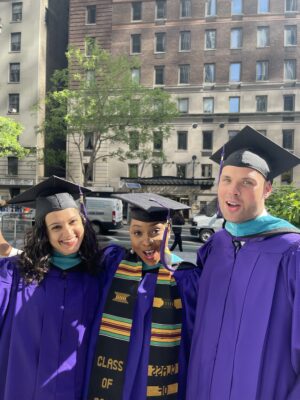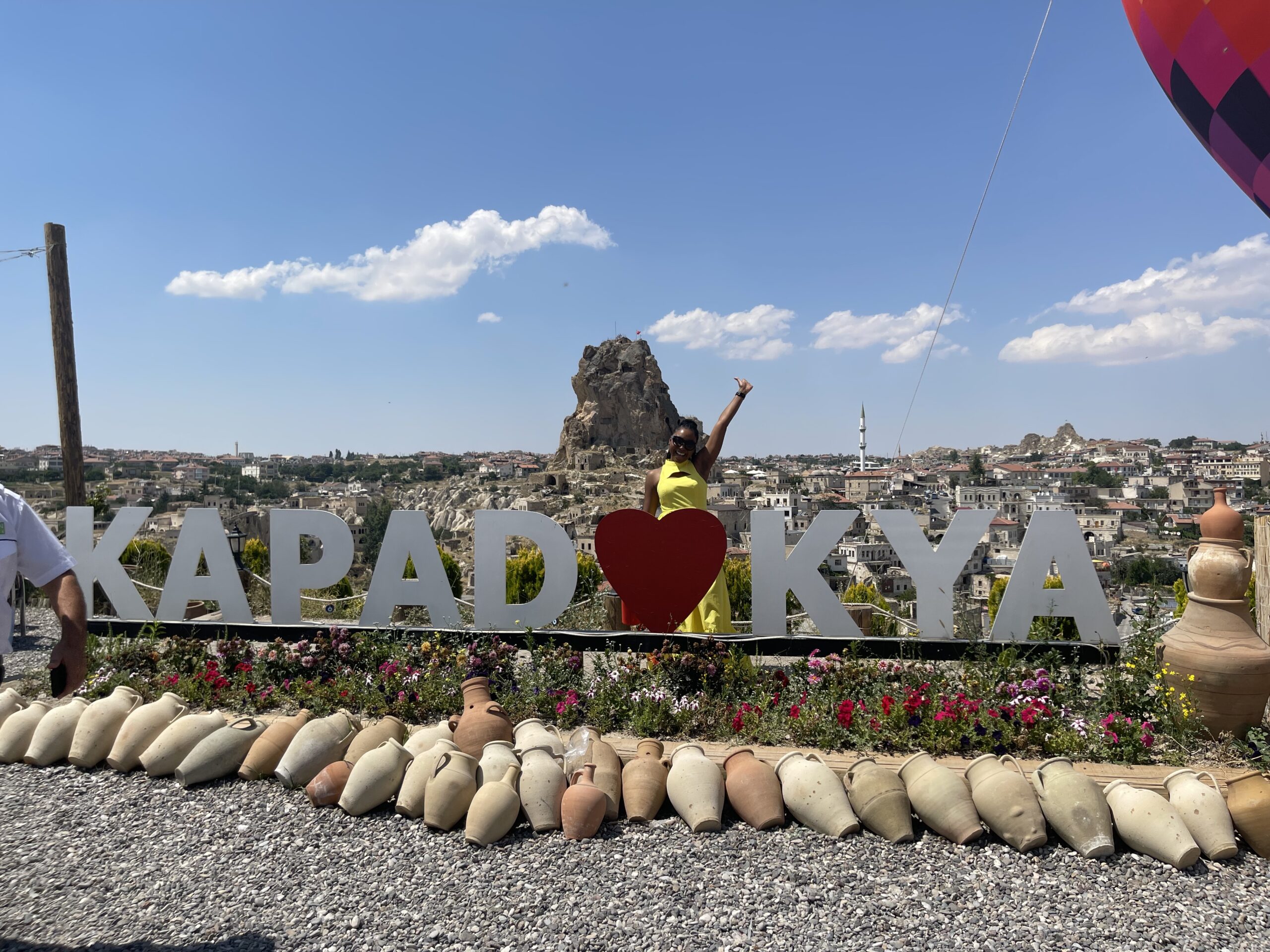Bamidele (Bami) Odusote joined Third Horizon Strategies as a manager in June 2022, after working with the firm on a part-time basis for ten months while she completed her graduate work. She was born in New York, moved to Nigeria when she was a toddler, and studied in England before returning to New York for graduate school. Having come from a family of doctors, everyone expected her to pursue a medical career; however, she chose to study economics and worked with several consulting firms prior to Third Horizon Strategies.
New York to Nigeria…and Back Again
Bami spent most of her formative years in a very small town west of Nigeria and moved to a big city (Abuja) when she was a teenager. She went to a Catholic boarding school for high school – an experience that she said helped lay the foundation of her leadership qualities and open her eyes to different cultures in Nigeria. Upon graduating, she studied economics and management at the University of Leeds and simultaneously interned with several different organizations, including PricewaterhouseCoopers (PwC). Bami said that interning with PwC solidified her desire to pursue a career in consulting. Although she worked ridiculously long hours, she liked that consulting allowed her to work on so many different projects and be exposed to a breadth of clients in the public and private sectors. She planned to move to London after receiving her bachelor’s degree but made an impromptu decision to move back to Nigeria and accepted a position as an analyst with a consulting firm called ACIOE Associates, which is where she started understanding the core pillars of health care of the health care system. By the end of her third year, she realized that she really wanted to work in health policy. “Every time we would hit a roadblock, it was because the policy infrastructure supporting our solutions were weak, poorly implemented or sometimes even absent” Bami said. “So, I decided that I wanted to get the technical expertise needed to contribute policy design and implementation at national and subnational levels.”
Bami later accepted a data collection role that allowed her witness first-hand the intersection between health seeking behavior, health services uptake, and social determinants of health (SDOH). The role helped Bami gain additional perspective on the sort of policy interventions needed, and the low-hanging fruits for policy redesign especially in under-resourced settings. She eventually moved to the U.S. to pursue her master’s program in health policy and management at New York University. While she was attending New York University, one of her friends connected her to Third Horizon Strategies Founder and CEO David Smith.
Two Hemispheres, Same Issues

Bami (center) at graduation
When Bami started her coursework in the U.S., she was “completely blindsided” to find that the same issues she was passionate about working in in Nigeria existed in the U.S. “I assumed that since the U.S. is so developed, the country wouldn’t have the same issues and therefore there wouldn’t be a space for me to contribute,” Bami said. “But the more I understood how the health care system worked in the U.S., the more I realized that the same issues exist – especially at the subnational level.”
Bami said that although access to care in the U.S. is better than Nigeria, access to primary care is a big issue in the U.S. She feels that the underlying issues, especially in low-income communities, are linked to affordability – people are either underinsured or uninsured and therefore cannot afford the care they need. While there are provisions and other mechanisms to support low-income individuals, they are not being “fully” taken advantage of by these individuals. There are many reasons for this, but one is that they sometimes do not fully or are even aware of what’s available.
Bami said working at Third Horizon Strategies has helped her see U.S. the health sector for what it is, learn about all the different players, and identify what works at the national and state levels. Bami currently supports several of the firm’s projects related to SDOH and health equity. Along the way, she (and others) has discovered that she is able to see not only the big picture, but also all of the smaller components that come together to create it. She found that tracking moving parts to keep the “trains running,” even in the most complex projects, came naturally to her and decided to hone in on those skills. So far, she said the highlight of her role has been “working with some of the smartest people to come up with solutions that not only look good on paper, but actually work and wear a human face.”
Faith and Family
Bami shared that she is inspired by the strong women who raised her – her mom and her grand mom. Her mom started her career as a physician and transitioned into public health for the second half of her career, all the while raising three children alone. She believes that if she is patient, honest and hardworking, the turn tides will eventually turn in her favor every good thing will come to her; it may not come exactly when she wants it to, but she is sure they will come. Above all, she is grateful for all that she has and the opportunities that have come her way and encourages everyone to “wear this hat.” “The world would be such a better place if everybody just approached life with gratitude,” Bami said.

